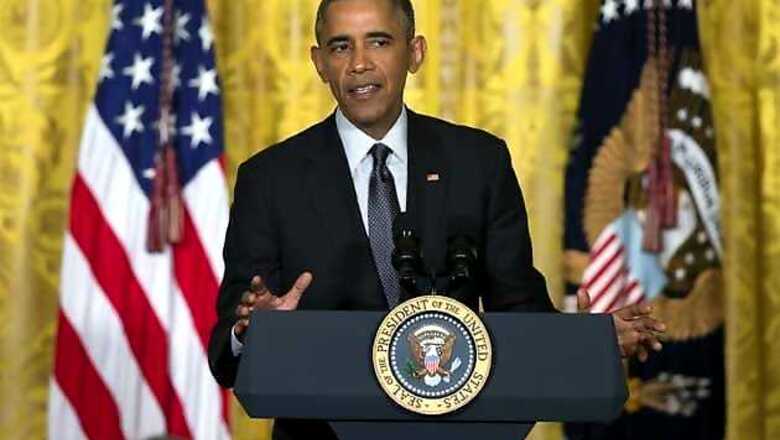
views
New Delhi: Strengthening defence ties between India and the US will be an important point of discussion during President Barack Obama's visit to India from January 25-27. Defence ties between India and the US are the most stable dimension of the bilateral. Defence trade between the two countries stands at $10 billion, and is bolstered by the successfully executed 10-year bilateral defence pact signed between the two countries in 2005.
During President Obama's visit, the two countries are likely to renew the bilateral defence pact, focusing on enhanced joint military exercises and deeper cooperation on counter-terrorism, maritime security and cyber security. It will upgrade the existing bilateral military exercises to multilateral exercises by involving countries such as Japan and Australia. The renewed pact will also focus on projects for joint weapons development and production as well as technology transfer through the Defence Technology and Trade Initiative. This is a significant opportunity for India to strengthen its domestic defence industry.
However, American companies have faced many challenges in the Indian arms market such as difficulties in offering meaningful defence offset programmes to India, the inability of the Indian defence industry to absorb the offsets offered, and the perceived bias of Indian bureaucrats towards public sector units despite their poor track record in defence production.
Since the terrorist attack in Mumbai in 2008, counter-terrorism cooperation between India and the US has evolved significantly by way of information-sharing, cooperation between law enforcement agencies and joint efforts to tackle terrorist financing. The renewed defence pact is expected to elevate cooperation in criminal law enforcement, military information exchange and legal matters.
Due to the prolific use of the Internet and social media by groups such as the Islamic State, cyber security has become another emerging area of concern for both counties, and it is likely that India and the US will try to devise steps to interdict terrorist activities in this arena.
(Sameer Patil is an associate fellow for national security, ethnic conflict and terrorism at Gateway House)



















Comments
0 comment